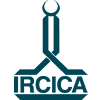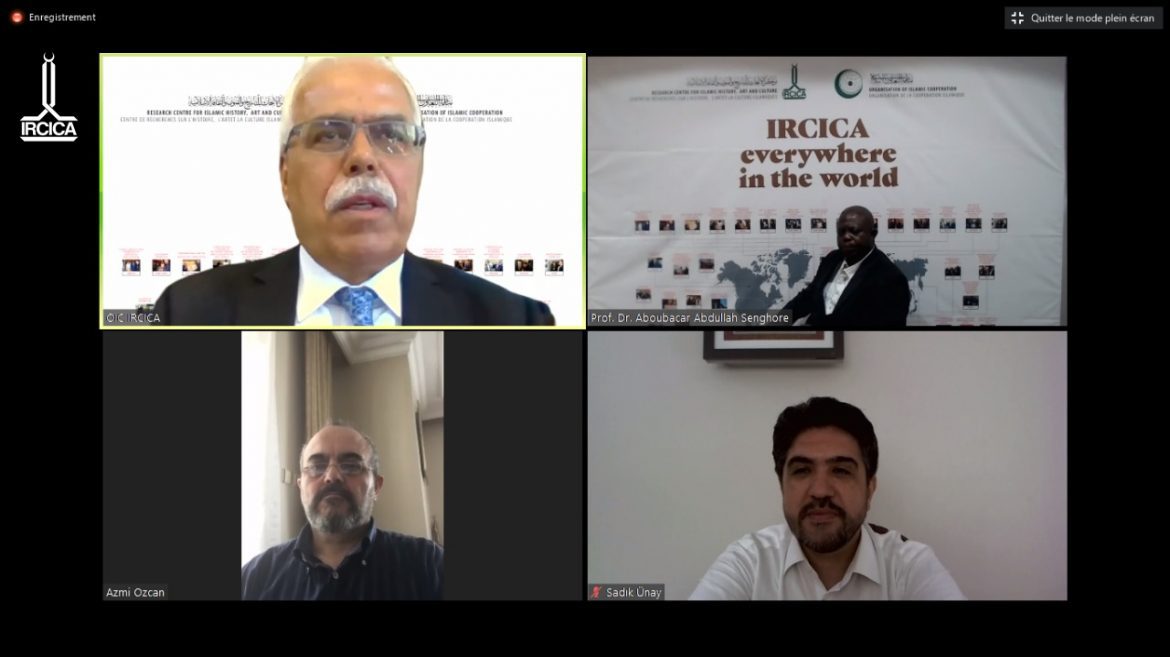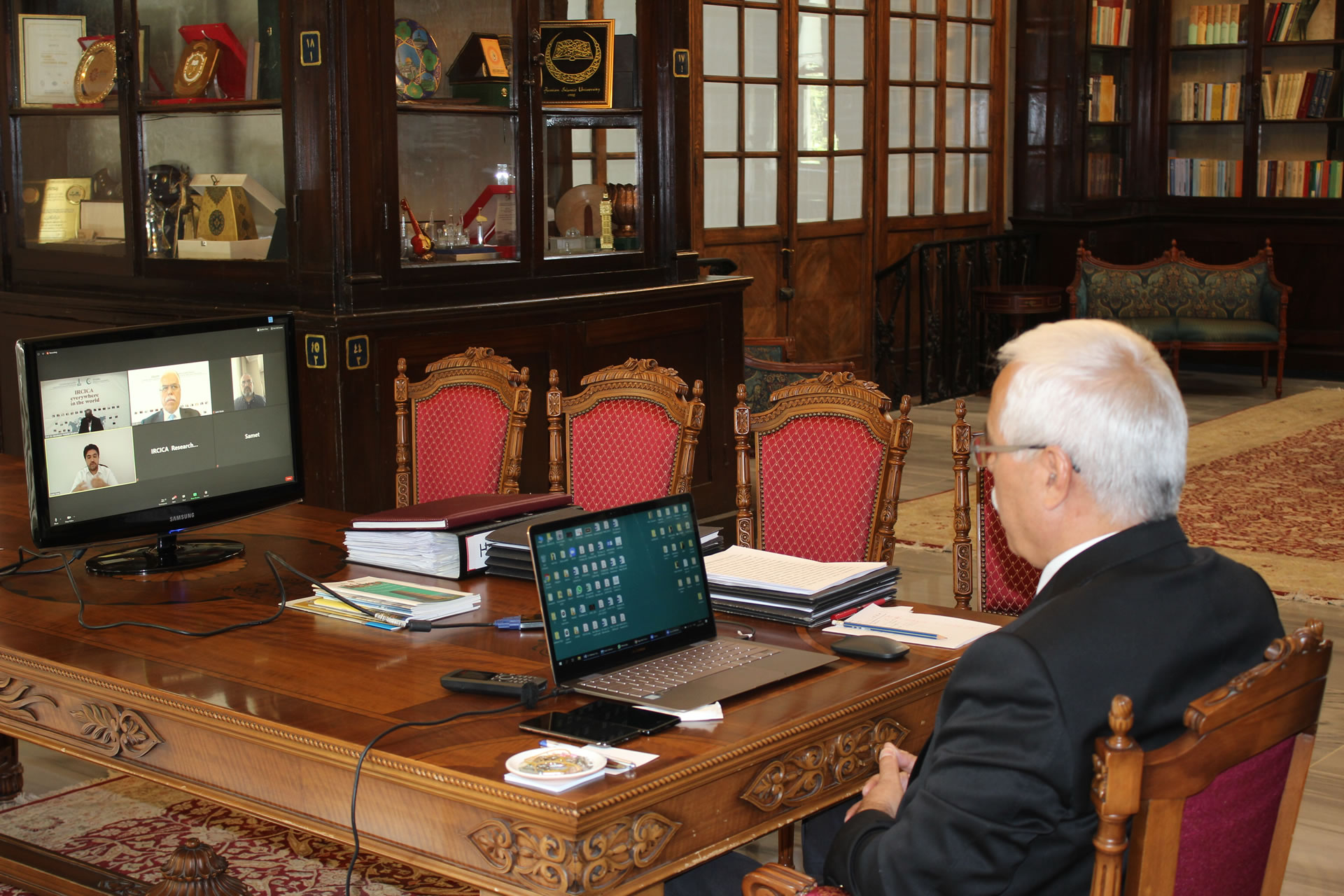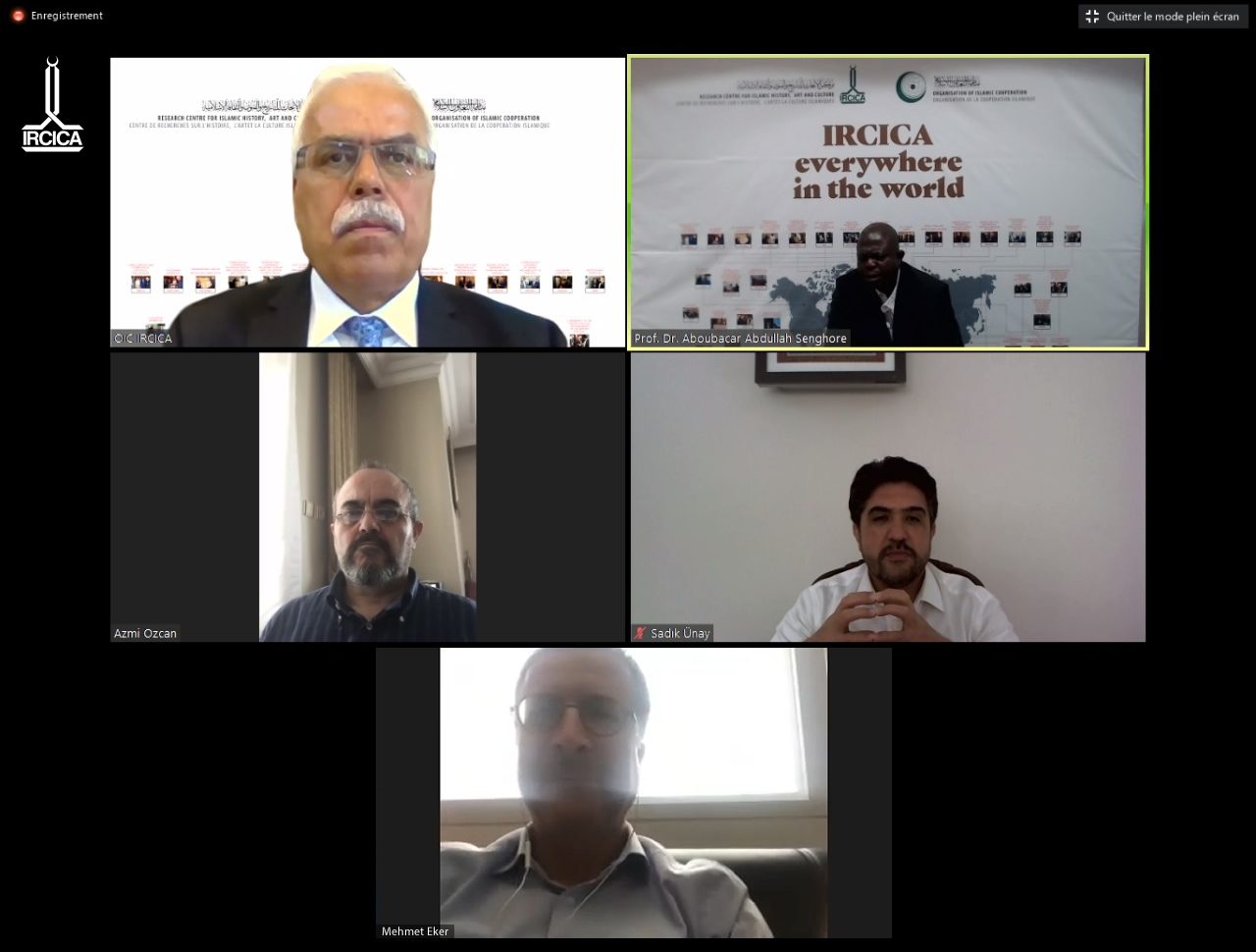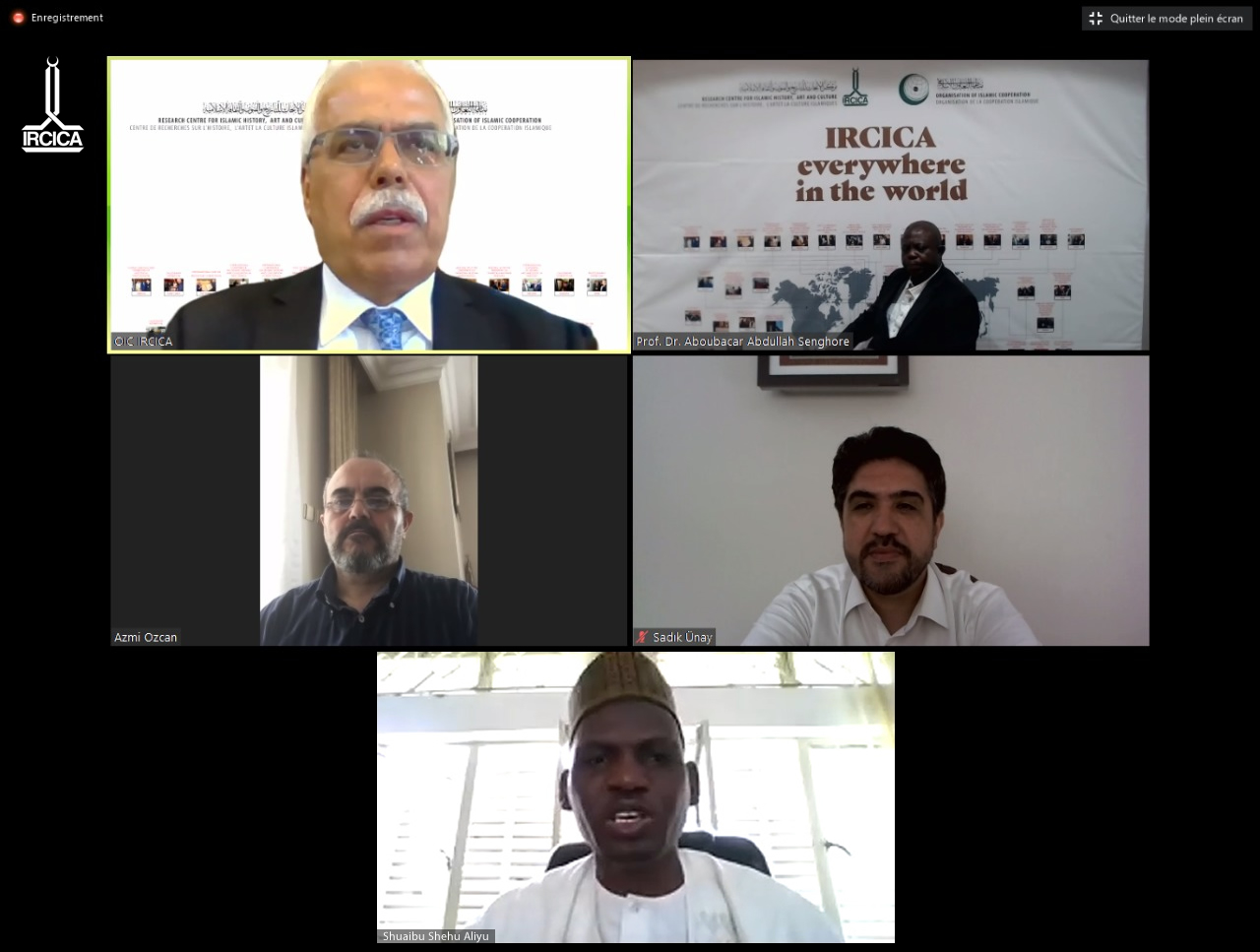IRCICA Webinar Series started with the meeting on “Turning Points in History and Effects of Pandemics” held on 20 May 2020 at 13 hours. The webinar was opened with the speech of IRCICA Director General Prof. Dr. Halit Eren. It was moderated by Prof. Aboubacar Abdullah Senghore, Assistant Director General, IRCICA. The theme of the pandemic was taken up from two different perspectives: an overview of humanity’s experience in pandemics was given by Prof. Dr. Azmi Özcan. An evaluation-estimation of economic outcomes of the pandemic were provided by Prof. Dr. Sadık Ünay. In the half-hour time that was left for discussion, questions were received from Chad, Nigeria, Saudi Arabia, and Tatarstan (Russia) which enriched the session.
Prof. Dr. Halit Eren opened the webinar by depicting the trends and consequences of the Coronavirus pandemic with regard to various sectors of activity and international relations. Relating to culture, Prof. Eren said that it is one of the sectors severely hindered in consequence of the pandemic but at the same time, culture acquired added functional importance for the vast possibilities of virtual activities, contacts and exchanges it offers. IRCICA, the OIC’s research centre which works to promote research and learning and strengthen international cultural cooperation, redirected a considerable part of its activities towards subject areas that would be pertinent for addressing the crisis and challenges it poses. Prof. Eren said that IRCICA is concerned with consequences of the pandemic especially in their various cultural, academic, artistic, educational and social dimensions. By creating avenues of scholarly research, cooperation and platforms of exchanges in these areas, it helps towards accurate understanding of the crisis and draws upon the power of culture towards reinforcing mutual support between cultural and academic communities and among all peoples. IRCICA Director General outlined the activities organized by IRCICA online through videoconferencing.
Prof. Dr. Aboubacar Abdullah Senghore, a scholar in comparative law and diplomat, who moderated the webinar, elaborated upon the meeting’s theme and structure emphasizing that one particularity of the crisis which makes it most severe is that its causes, ways of eruption and expansion and its eventual consequences are unprecedented and unknown. The larger part of the OIC Member States area is affected seriously and the whole Muslim world together with global community is striving to overcome it.
Prof. Dr. Azmi Özcan, historian, specialist world political history and Asian history, said that many epidemics have been influential in changing the course of history. Prof. Özcan cited some major epidemics which played roles in changing the course of history, from the viewpoint of political and religious history. He evoked societies’ attitudes and reactions associated with them, particularly the questioning, in religious terms, of the bad fate those epidemics represented for peoples. The plague that started in 156 AD in Europe decimated the Roman Empire. The Justinian Plague dated 541 is said to have contributed to dissolution of the Byzantine Empire and start of the Middle Ages. The Black Death plague which started in 1346 killed almost half of Europe’s population. It gave lessons as to sanitation and prevention of diseases. The cholera epidemic of mid-19th century, the flu pandemic of late 19th century, all spread across continents to reach peak mortality rates. The 1918 epidemic called the Spanish Flu hit Europe and surrounding continents during World War I. The Asian Flu of mid-20th century spread to the world from China. The Hong Kong Flu of 1968 caused up to four million deaths. The HIV pandemic which started in 1976 killed 40 million people across the world. Experiences of past epidemics can give ideas as to how far their consequences can go. Insights can be drawn from them on possible effects of various practices and measures, such as performances in group versus isolation, among others. The present crisis is definitely also one that changes the course of history.
Prof. Dr. Sadık Ünay, specialist in international economics, addressed the economic and governance impacts of the crisis. Even in the 1929 Great Depression, he said, humanity did not see such emergencies and such a complete halt of the economic activity as in the present pandemic. To keep supplies flowing for their populations, countries had to ban or limit exports of cereals and other food items and basic commodities. Thus one of the consequences is an increase in protectionist trends. A new economic nationalism can be said to have started. Furthermore, most countries have put up packages of fiscal stimulus to maintain economic vitality. Thus a new Keynesian area has started, with governments intervening through fiscal measures to stimulate their economies. Inflation rates will increase due to higher production costs. Unemployment rates rose everywhere. Developing countries among them the OIC countries, disadvantaged from the start, are struck in a conundrum. Another issue after the pandemic, will be the monopolies of those countries which will hold the vaccines. In brief, in these hard times, cooperation between countries gains more importance.
Prof. Senghore, moderator of the meeting, said that entire spectrums of societies are affected while free trade, tourism and industries are locked down. Developing clear visions of issues involved is gains all the more importance. Then he opened the floor for questions. During the questions and answers, it was underlined that
- the historical dimensions are important because they help to understand the issues in depth and in content
- cultural dimensions include the observation that the present pandemic is different from the earlier ones as electronic communications and the digital era allow everybody to be informed of the disease, its progress and how to handle it; for the same reasons, it allows sharing and cooperation more than before
- with regard to culture and lifestyles, the vital importance of hygiene and washing, which is part of Muslims’ everyday practice, has been clearly understood in this pandemic
- various positive and negative scenarios are being suggested for future trends of world economy; what is certain is that greater efforts will be needed for cooperation and new forms of aid between countries will need to be developed
- it has become clear that it is time for countries and peoples to leave aside political divergences and unite.
In his closing remarks, Director General of IRCICA Prof. Dr. Halit Eren thanked the participants and attendees who joined from different countries for their interest. He said that IRCICA’s online forums will continue in this and the other diverse fields of activities.
